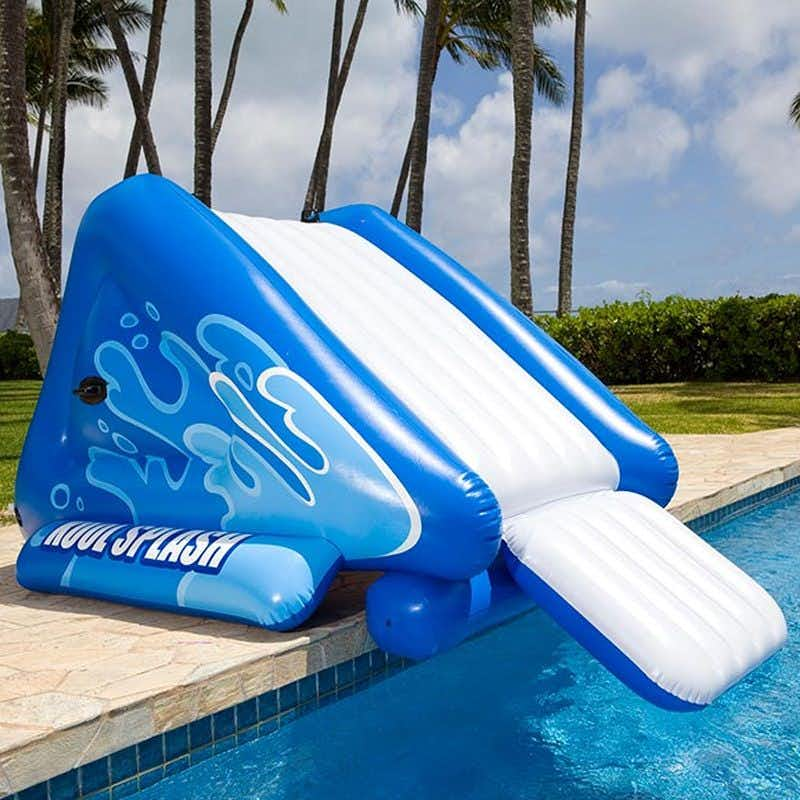An inflatable slide had been placed over the concrete edge of the swimming pool. The woman climbed on top of the 6-foot-high inflatable slide and started sliding down head first. The slide suddenly deflated and the woman struck her head on the edge of the pool. The woman’s neck was broken from the accident and she also suffered spinal cord injuries that left her paralyzed and unable to breathe. The woman died the next day at a local hospital. The woman’s family brought a wrongful death suit against the manufacturer of the slide claiming that the slide was unreasonably dangerous and did not meet applicable safety standards.
Question(s) For Expert Witness
1. How can an inflatable pool slide collapse under a swimmer’s weight, and are these slides unreasonably dangerous?
Expert Witness Response
Inflatable pool slides are very attractive to many customers because they look appealing and are generally affordable. The slides can usually be purchased for less than $100. Many product review sites state that these slides are great fun and make excellent pool toys. The danger with these slides is that they can easily deflate, under almost any weight, and this makes them unable to support any kind of load. Also, even though the manufacturers of these slides typically put small-print warnings on the slides stating that they are not to be used head-first, there are no federal safety standards that require that the slides be tested for this type of use. There is a debate over whether Consumer Product Safety Commission regulations designed to promote pool safety should apply to inflatable slides. Some manufacturers claim that these regulations are only applicable to in-ground pool slides that are made of solid material like fiberglass. The manufacturers make this claim because inflatable slides did not exist when these regulations were enacted in the late 1970’s. It is usually held that federal safety standards apply to all type of pool slides regardless of the materials that they were made from. Another major safety problem with inflatable slides is that many manufacturers of the slides use Asian companies to safety-test the slides and they are never actually tested for compliance with US federal safety regulations. In this case, the inflatable slide probably would not comply with federal safety standards which require that all pool slides be able to support loads of 350lbs. without “deformation” or giving way. In order for a manufacturer to not be held liable for injuries such as this one, it would have to design the slide so that air is not displaced by the shifting of weight as a swimmer slides down so that it could support a heavy load.
About the author
Inna Kraner, J.D.
Inna Kraner, J.D., is currently Associate Director of Development - William S. Richardson School of Law. She worked in client development at Proskauer Rose LLP, and held various marketing positions at Skadden, Arps, Slate, Meagher & Flom LLP. She has experience litigating corporate, industrial, financial, regulatory, and controversy matters. Inna graduated with a J.D. from Boston College Law School and a B.A. from Brandeis University.



